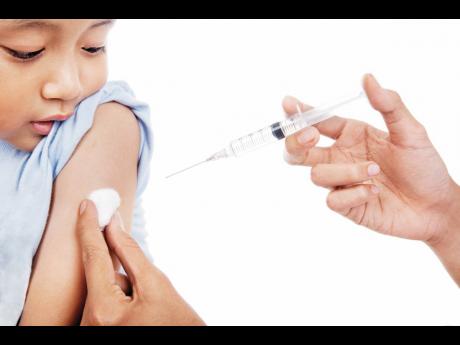A case for rational thinking: accepting or rejecting COVID vaccinations
As children raised in the Caribbean, and perhaps elsewhere in the world, our parents ensured that we were vaccinated against all known diseases. This process commenced even before we ‘came to our senses’ and long before we were capable of thinking for ourselves. It became an accepted event in our lives when at primary school the visit of the public health nurse, to give injections or provide oral medications, was something expected but not of much concern. We lined up obediently and got our shots and later informed our parents of the day’s activities. There was no cause for alarm.
Things and times change. Fifty years later, what do we find? Adults who ensured offspring were vaccinated in earlier days have been required to accept vaccinations against the most recent virus on the scene. Our acceptance of vaccines is suddenly reversed, causing our health scientists great concerns as the accepted tools and methods of treatment are quickly and openly questioned.
The proposed health protocols since early 2020 have been met with degrees of apprehension and numerous conspiracy-type theories, many of which are openly expounded by our leaders/politicians, ostensibly satisfying their own agendas.
It is indeed strange if not baffling that we who had no problems being vaccinated in our youth or having our own children protected against the diseases of the time, now raise a hue and cry about being vaccinated as adults! The tables have indeed turned.
Despite all the explanations and proofs provided by our health authorities concerning the efficacy of the various vaccine regimes, persons remain sceptical.
There is an argument to be made for those who have seriously compromised immunodeficiency or for religious beliefs to be exempted from the current thrust by health authorities. They should, however, observe all the other COVID-19 protocols. But what then can we say about the others?
This phenomenon has been impacting the world for the better part of two years and is likely to continue to have an adverse impact for at least another two. We have reached the stage in that time where a number of COVID-19 vaccines have moved from the ‘experimental’ to ‘fully approved’ status. It can now be argued that there will be more in the near future and such vaccines will be on an equal footing to treatments for malaria, influenza, measles, polio, smallpox, dengue, etc., but will this likely cause the doubting Thomases to be vaccinated? Will we now see an increase in persons accepting vaccinations to protect themselves and others from the ravages of COVID-19?
SCIENTIFIC KNOWLEDGE
If we are going to beat this virus, we have to become more proactive as a people and believe in ourselves, believe in existing scientific knowledge, learn from the experience of others, be politically bipartisan and supportive in our approach and be mindful of our environment at all times.
It cannot be that under the present circumstances, with the very existence of humanity being threatened, signified by the number of cases and deaths globally from the pandemic, that individuals believe and accept that their actions in the present context have no consequences for others. It must be unreasonable, therefore, for one to assume that as an unvaccinated person they should have all the rights and privileges of the vaccinated and therefore should be allowed free access to the work environment as the latter.
It cannot also be right for children to operate freely in an environment in which they are themselves not protected from contracting the virus. In either case, exposure to the virus in these environments will result in future spread in the homes and beyond, not to mention the inevitable unnecessary deaths that will result. We need to realise and accept that as adults we have responsibilities and there are consequences for all our actions.
Although the author does not believe in compulsory vaccinations, except in the case of the primary security agencies of a given state, it is recognised and accepted that the business community, for example, has the right to decide who should turn up for work and who should not, in the circumstances of the prevailing COVID-19 pandemic. The functions of the economic, health and security assets of a nation must receive serious considerations under the circumstances.
Finally, the COVID-19 pandemic has shown the world that there are severe limitations in its ability to educate its masses. This has, to a large extent, contributed to the numerous challenges being faced when trying to vaccinate populations, especially when political agendas are not in tandem with the real health needs of a people.
What is absolutely clear is that the education of a people, as a government responsibility, must now be accorded the ultimate priority. Globally, we are all connected. This is the one world that we know. Education will be key to surviving the pandemics of the future.
Email feedback to columns@gleanerjm.com


